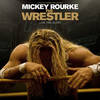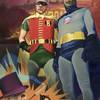What Do College Professors Do, Anyway?
Introduction
I joined this college as an Assistant Professor of Communications this fall with a PhD in English, a background in journalism, and five years of experience teaching undergraduate literature and writing courses in New York and New Jersey. Since I was one of eight new faculty hires, I was able to make fast friends with several of my fellow neophytes, and the faculty, staff, and administrators were all welcoming and eager to “show me the ropes.” While I still have much to learn about campus culture and my responsibilities as a faculty member, I felt that my first semester went surprisingly smoothly. Aside from teaching a four-course load that included computer science, journalism, and mass media classes, my main responsibility was to assume the position of faculty advisor to the student newspaper. My student staff and I produced four issues on a monthly basis, which generated some constructive criticism and several positive reviews. I also attended a number of faculty workshops throughout the semester that helped me refine my teaching methods and improve my knowledge of computer science. In addition, I was fortunate enough to see my first book published by Pearson/Longman during this past term – a literary anthology and freshman composition textbook called The Conscious Reader (I became a full-fledged editor with this 10th edition). Next semester I hope to teach my students more challenging material and organize on- and off-campus events to improve my service to the college and to the community.
Teaching Effectiveness
While one of my courses this past semester, New Media, was comprised primarily of upperclassmen, the rest were essentially dominated by freshmen. As one might expect, the seasoned students, several of whom were majors, were remarkably easy to teach. They had a desire to learn and a solid work ethic. In fact, in certain cases I was pleased to have the opportunity to mentor students who wished to find rewarding internships and to go on to earn graduate degrees in their fields. When I have a strong rapport with students – as I did throughout the semester with the New Media class and frequently with my Writing for the Media section – I am able to lead the kind of low-key, discussion-centered lesson that my department chair correctly described as “Columbo”-like in her evaluation. When students are more reserved and less apt to respond to that teaching style, I am often compelled to revert to more of a lecture-style lesson, which is not a teaching style I prefer.
The freshmen, especially those in Composition and Research, proved rather difficult to engage. It was a challenge keeping them interested in the lectures, enforcing classroom discipline, and assigning writing assignments to them when they had no real experience composing long essays and journalistic pieces. In an attempt to help these new students acclimate to life at the college, I proceeded at a deliberate pace through the curriculum, and provided extensive, walk-through directions for each of the assignments. Although a few of the students appreciated the “hand-holding” that I was doing, I found myself regretting the slow pace that I had set for my classes by mid-semester. In fact, several of the more advanced students complained that the material was not challenging enough and classes were not tightly structured. The six students that I had for upwards of three classes seemed particularly frustrated.
Attempting to improve my ability to teach and mentor members of the “Millennial Generation,” I went to several conferences and workshops throughout the semester designed to help teachers improve student literacy, writing ability, and research skills. I attended Dr. Carole Wells’ presentation on “The Faculty’s Role in Student Research,” Toby Fulwiler’s “Writing to Learn/Learning to Write” local presentation, an end-of-term meeting of Composition and Research teachers led by the department chair, and The Alvernia Faculty Academy at Stirling in which discussion of student (il)literacy took center stage. Dr. Wells’ lecture helped me craft lessons that would improve students’ understanding of research methodologies and the importance of developing solid working thesis statements. The end-of-term department meeting suggested new strategies for encouraging students to use reliable sources and avoid plagiarism. I was particularly struck, though, by the ingenuity of Fulwiler’s presentation, which encouraged me to revamp my Composition and Research section in mid-semester, transforming it from a primarily discussion-oriented class to a workshop in which in-class writing was emphasized during each lesson. As I had hoped, several of the students responded to the workshop format, and their writing improved noticeably in quality. However, a few students were unused to doing so much writing with pen and paper and suggested that they would be more comfortable and more productive working with a keyboard. Since I intend to craft my next two sections of Composition and Research to be just as writing intensive, I have asked the registrar to grant me the use of a computer-filled classroom next semester in order to better accommodate the needs of such students.
While Fulwiler’s method is particularly effective in making students more comfortable writing and in fostering stronger work habits, his textbook-free approach is limiting because it allows students to write primarily from their own personal experience and draw upon their love of popular culture. During the Alvernia Faculty Academy at Stirling, professors from both Divisions expressed the importance of improving students’ reading and critical thinking skills by assigning them more challenging readings and more historically significant texts. So my goal for the coming term is to keep my composition students writing a lot in class while doing extensive, difficult reading at home. The sacrifice of lecture time may well doom the project from the outset, but I am eager to see how many students are able to rise to the occasion when I raise my expectation level instead of watering down my curriculum to make it more “accessible.”
In addition to attending conferences on student literacy, I strove to improve my use of computer technology as a pedagogical tool. I attended The Conference for Adobe Photoshop Users (a CompuMaster Seminar) as well as a series of workshops on Dreamweaver, Web CT, and Excel hosted by out IT staff. These courses will help me further integrate technology into my lessons and develop strategies to improve students’ ability to gather reliable information from internet sources.
Addendum: I’ve just read my 2005 Student Feedback Forms and I think that they offer a fair evaluation of my classes this semester. Since it was my first semester at this college, and my first time teaching these courses, the term was as much a learning process for me as it was for them. Several students criticized an inefficient use of class time, cited unclear assignment parameters, and were put off by deviations from the syllabus. I am also unsurprised that my more conscientious students were irritated with me for being too lenient with disciplining and penalizing underachievers. All told, I was already aware of several of these problems, and anticipated these criticisms. I’ve already taken steps to offer more challenging material, more tightly structured lessons, and to enforce higher academic standards. However, I am particularly pleased with two recurring themes in my feedback forms. I was a little worried that my teaching style was a bit too “autobiographical,” and that I used too many personal anecdotes about my experiences as a reporter to teach journalism. However, my students seemed very positive on that score, and said that my stories were entertaining and informative, so I will not shelve my personal narratives after all. I was also very happy to see that my efforts to give lots of one-on-one attention to my composition students met with strong approval. Since this is my plan for the coming semester, it suggests that I am on the right track. (So, thankfully, it seems that my composition class may have been more successful than I realized.)
Overall, I feel that I have learned a lot from my first semester teaching at Alvernia, and I am eager to do a much better job during my second semester.
Advising and Service to Students
As a faculty advisor to the student newspaper, I participated in every step of putting together each of the four issues of the paper published this past semester (Vol. 15, Issue 1; Vol. 15, Issue 2; Vol. 15, Issue 3, and Vol. 15, Issue 4). I began the production cycle of each issue by meeting with student editors to determine what stories “needed” to be covered. Then I approached my Journalism Workshop students and our freelance photographer with assignments, and allowed many reporters to select their own stories. I also worked with the president to create a monthly column. To make the paper even more “literate” and more “Catholic,” I created two new regular features, the Monthly Mission Moment and Poetry Corner, and my staff and I chose selections for these features while waiting for articles to be submitted. Once the stories came in, the student editors and I proofread them to improve content, grammar, and spelling. Then we decided on the two lead stories and the general layout of the paper. After the issue was laid out using the program InDesign, it was transformed into an Adobe Acrobat file, burned into a CD, and sent to our printer. The issue would arrive a week later, and I distributed it throughout the campus, sometimes single-handedly, sometimes with the help of students or staff members.
I had a few problems getting used to organizing the paper. Sometimes students would hand in articles late, or not at all; other times editors fell ill or had major exams and were effectively unable to contribute much during the week we were in full production. However, I felt that I had a strong team of editors overall and my student reporters frequently surprised me with the high quality of the work they submitted. Our biggest obstacle throughout the semester has been in obtaining keys to the office from public safety for the editors and myself. After a few months of waiting, my editors are now all equipped with keys and I have been told that my key should be arriving shortly. Another disappointment has been that the press’ color printer has malfunctioned, so the issues this semester were all entirely in black-and-white, save for some red “spot coloring” on the cover logo.
My last major contribution as an advisor to students was to organize the creation of an Internship database for communications careers. I asked each of my students in Writing for the Media to go on an “Internship Treasure Hunt,” and send me information on whatever they found. I then compiled the information, placed an electronic version on the T: drive, and printed out a booklet of internships for those who were too “Luddite” by nature to use the T: drive.
Scholarly Research and Creative Work
The tenth edition of The Conscious Reader (an anthology of literature, poetry, drama, and non-fiction prose designed for first-year writing students) was published in November of 2005. This was the first time I was presented as a full-fledged editor of TCR and my name appeared on the cover. In the two previous editions I was either thanked in the Acknowledgements or listed as an “editorial assistant” on the inside cover. For this edition, I was responsible for choosing many of the new selections, wrote the biographical head notes for the authors, and contributed classroom discussion questions to accompany the new texts. I also wrote the index, rearranged the order of the “returning” selections, improved the glossary, chose several pieces of artwork, and created a new section called “Globalism, Nationalism, and Cultural Identity” to give the book a more current feel. I was also responsible for revamping the Popular Culture section, and provided new texts on blogs, reality television, fast food, Harry Potter, and politically slanted talk radio programs. I also suggested including a short story by Sherman Alexie, rap lyrics, and a shooting script for the British television show The Office, but these ideas were not approved, so such selections do not appear in the book.
Once my work on The Conscious Reader was complete, I began a quest to get my dissertation published. McFarland and Company turned down the manuscript for being too academic, so I went to the December MLA Convention in Washington, D.C. to make contact with other publishers. The SUNY Press based in Albany, Oxford University Press, and Blackwell all expressed interest in seeing a précis. However, I was surprised to discover that the service that published bound copies of my dissertation for me, ProQuest, began selling downloadable Adobe Acrobat versions of my dissertation on Amazon.com sometime in December. A ProQuest representative reassured me that I retain the rights to my work, and revealed that the company intends to begin selling bound copies through Amazon within the next few months. While I am glad for the exposure (and the promise of royalties), I am worried that the availability of bound versions of my dissertation from ProQuest will harm my ability to get my work published by a more scholarly academic publisher. It is an odd problem, but I will continue to seek publication for The Many Faces of Emma Woodhouse: The Film and Television Adaptations of Jane Austen’s Emma as Readings of the Novel.
While at MLA, I also attempted to sell my idea for an anthology of comic book and essay selections called Comic Books, Super Heroes, and Culture, geared towards freshman writing classes. The guiding principle of the book is that young people are primarily visually oriented and are more interested in discussing popular culture issues than contemporary politics and literature, so they would respond to a book about super heroes dealing with issues of race, gender, war, and technology. The proposed book combines primary sources (comic books from Marvel and DC by Alan Moore, Stan Lee, Will Eisner, etc.) with academic deconstructions of comic books by Umberto Eco, Gloria Steinem, Jonathan Lethem, Harlan Ellison, and others. Pearson and Bedford/St. Martin’s have both turned down the book, but I await responses from
McGraw-Hill and Blackwell.
Finally, I presented a paper, “Spider-Man, Authorship, and Adaptation,” at the Comic Arts Conference in the San Diego Convention Center (Room 7B, 10:30 – noon) on Friday, July 15, 2005. The paper was an examination of how the intimacy of various connections between character and storyteller have resulted in Spider-Man’s gradually, over forty years, becoming one of the richest and most complex science-fiction characters in comic books.
Service to College, Profession, and Community
In its “criteria for promotion in rank or the granting of tenure” the Department of English and Communication combines the requirements of “Service to the College,” “Service to the Profession,” and “Service to the Community” into one overarching category. The following represents my work in each of the three areas for the Fall 2005 semester:
During the past two months, I have laid the groundwork for bringing guest speakers to the college next semester, and have begun to organize a free film festival at the Goggle Works. I am also hoping to speak with the music department about the possibility of bringing a classical music ensemble to the school for an evening or weekend concert. All of these events are on track to take place next semester.
I worked with a fellow communication professor to organize a class trip to the local newspaper and brought my students to see guest speakers from the world of journalism.
As I understand it, book reviews count as Service to the Profession, and I have contributed several book reviews this semester to CHOICE magazine, which is a periodical designed to help librarians determine which books they should purchase for their libraries. Of the five reviews I wrote, at least two have been published already and the other reviews will be published sometime next semester. My review of “Knox-Shaw, Peter. Jane Austen and the Enlightenment. Cambridge, 2004” appeared in the July 2005 issue of CHOICE. My review of “Dante and the Unorthodox: The Aesthetics of Transgression. Wilfred Laurier, 2005” appeared in the December 2005 issue. My as-yet-unpublished reviews were for books called Intimacy in America, Imagining the Internet, and Internet Playground.





































i-Italy
Facebook
Google+
This work may not be reproduced, in whole or in part, without prior written permission.
Questo lavoro non può essere riprodotto, in tutto o in parte, senza permesso scritto.